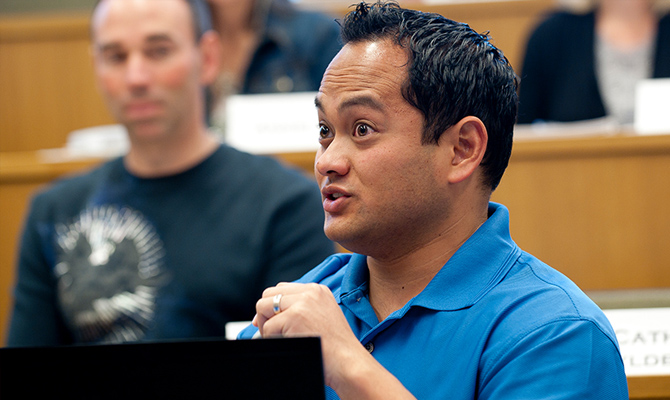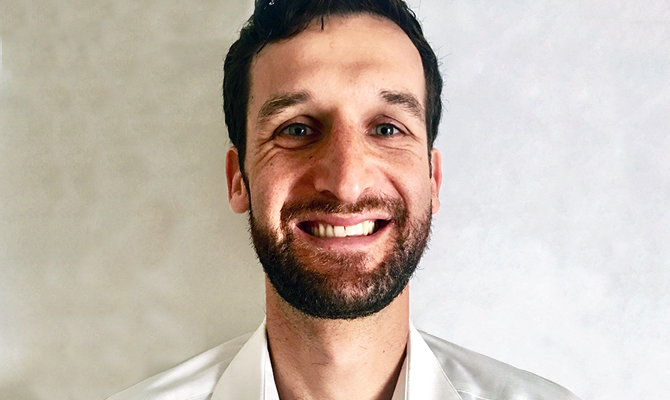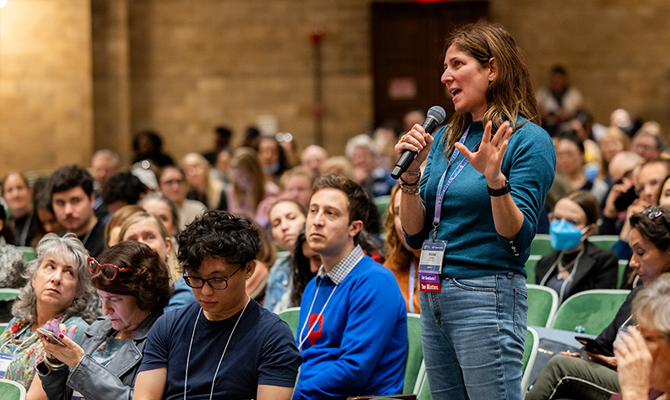Service learning projects completed in 2020 include:
Philabundance is a Philadelphia-based food bank, serving the food insecure in nine counties in Pennsylvania and Southern New Jersey. Owing to its ambitious goal of not just relieving hunger, but ending it, a dispersed and diverse team working out of multiple sites and with leadership turnovers, issues with silos, morale, and productivity have developed over recent years. Based on a situational analysis and a review of potentially applicable positive psychology research, Team Black believes that the organization could benefit from the positive psychology theories and research relating to (1) positive emotions and positivity resonance, (2) character strengths, and (3) meaning and mattering. Team Black has suggested a menu of positive interventions that would serve to bring these theories to life at Philabundance, to be introduced based on a timing that will depend on operational feasibility, particularly given the COVID-19 crisis. It is hoped that these interventions, all cultivating more connections at the organization, will not only help Philabundance to weather the crisis, but to cultivate connections among individuals, teams, and the organization as a whole, and ultimately increase well-being for all.
See the full service learning project on Penn's Scholarly Commons website.
The Travis Manion Foundation is a 501c(3) foundation dedicated to serving military veterans and their families, as well as fostering character in our nation’s youth. Travis Manion Foundation (TMF) promotes positive psychology by asking employees to take various introductory courses and take the VIA Signature Strengths test. While staff take the VIA Signature Strengths test, they do not learn how to apply their signature strengths. As such, we recommend a workshop that uses character strengths interventions with the aim of increasing meaningful experiences at work. By increasing meaning at work, we predict TMF employees will experience more well-being and engagement at work.
See the full service learning project on Penn's Scholarly Commons website.
Defined by their last, worst act, prison inmates are an often-forgotten population. Rates of childhood and adult trauma, such as physical and emotional abuse and post-traumatic stress disorder (PTSD) are high among incarcerated persons (Wolff & Shi, 2012). Art can be a valuable tool in correctional facilities, benefitting inmates in the following categories: therapeutic, educational, prison quality-of-life management, and community involvement (Johnson, 2008). Through their intensive two-week art-based program, Shining Light (SL) offers a holistic approach to prisoner rehabilitation, reshaping inmates’ perspectives through intentional challenges intended to promote self-discovery, hope, meaning, self-efficacy, relationship skills, and overall enhanced well-being. In an effort to aid SL in supporting inmate well-being post-workshop, we propose an intervention which incorporates and utilizes character strengths in the following capacities: facilitator-training, a talkback, and journaling. This intervention proposes to amplify the positive effects of SL’s workshop and implement ongoing support post-program.
See the full service learning project on Penn's Scholarly Commons website.
Over half of providers in the healthcare field experience burnout. Burnout syndrome is defined by the prolonged psychological and physiological response to chronic and interpersonal job stressors, and can result in a number of symptoms that negatively affect workplace morale and performance, including physical exhaustion, job dissatisfaction, and feelings of hopelessness. MidMichigan Health (MMH), a division of the University of Michigan Health system that serves nearly one million people in Michigan, has created the Provider Wellness and Burnout Council (PWBC) to address issues of burnout within the organization. To build on their initial work, we propose a long-term intervention based on the science of physician well-being, appreciative inquiry, goal-setting, and employee engagement. This intervention is intended to promote well-being among MMH providers through the creation of a clear, robust positive vision for provider well-being that involves all organization stakeholders throughout the development and execution of this vision. In light of the emerging COVID-19 pandemic and the subsequent strain on our nation’s healthcare resources, we have also proposed a short-term intervention for addressing provider well-being by sharing with providers easy, evidence-based resilience interventions.
See the full service learning project on Penn's Scholarly Commons website.
Hot Bread Kitchen (HBK), a not-for-profit in Brooklyn, New York City, provides culinary training to women living below the poverty line as a pathway to jobs in the food services industry. HBK provides wraparound support services, ranging from help with childcare and English language skills through to training in professional readiness skills. HBK’s members are carefully screened, yet some still struggle with the stressful, fast-paced, and multicultural kitchen environment. Based on a review of the literature, we propose a positive psychology plan to strengthen individual and team thriving in the kitchen by developing resilience, engagement, and social connection, using specific activities relating to cognitive-behavioral skills, character strengths, team-building, and meaning and purpose. We provide a library of activities that HBK staff—as experts on their population—can adapt and fit into their evolving curriculum, and a short training for staff, to unite them around goals and approaches.
See the full service learning project on Penn's Scholarly Commons website.
The U School is a district high school in the Innovation Network of Philadelphia Schools dedicated to preparing students from low-income and underserved communities for college and careers. One of the primary structures that has been developed to provide personalized support for students is its advisory system, Possi Circles, representing the “possibilities” for students at the U School. These non-academic advisory support groups of 10-15 students and one faculty leader form during freshman year and remain together for the duration of high school. Research supports the central importance of relationships in helping students, particularly at-risk youth like those at the U School, find success in school and develop lifelong capacities for well-being and achievement. This paper presents a set of recommendations, rooted in the science of positive psychology, for optimizing the form, content, and implementation of Possi Circles, including: a defined pathway to successful Possi Circles with a progression of measurable milestones, additional curriculum for year one Circles, and suggestions for successful implementation.
See the full service learning project on Penn's Scholarly Commons website.
This paper provides a review of the theory and application for how to integrate positive psychology, specifically VIA character strength interventions, into the programming at The Food Project (TFP). TFP is an impactful community based non-profit organization in Southwest Baltimore that provides cooking, farming, restaurant skills, job opportunities, sustainable food sources, and mentorship to the underserved youth in the area. All programs are facilitated at TFP’s community center. TFP is looking for ways to continue to build hope and resilience among its youth participants. Upon reviewing the positive psychology literature, we determined five specific evidence-based interventions that integrate VIA character strengths into the existing programming at TFP. Each intervention is intended to build resilience and cultivate hope for the youth participants and includes a measurement plan to evaluate the effectiveness of the new initiative.
See the full service learning project on Penn's Scholarly Commons website.
Growing loneliness and incivility are on the rise across America. In Midland, Michigan, civic leaders desire to further infuse positive psychology into their community by enhancing positive citizenship through civil discourse and connection. They have identified this need after instances in their community where citizens have engaged in discourteous and unproductive speech. Informed by current psychological research, our team proposes improving civil discourse and increasing positive connections in Midland by holding community discussions using a Communication and Connections Discussion Guide. Community leaders will be trained as facilitators to lead discussions using the Discussion Guide with various groups of any type and size in Midland. We believe the citizens of Midland can and will learn to constructively engage with their fellow citizens for enhanced communities and a better future. We have every confidence that Midland leaders will persist until every sector in the community has been illuminated with the message of hope, warm communication, and strong connections offered by these principles and practices of well-being.
See the full service learning project on Penn's Scholarly Commons website.
In partnership with GateWay Community College (GWCC), the following service-learning project outlines an application plan to implement validated measures of positive psychology constructs through GWCC’s Strategies for College Success (CPD150) course. Supported by a situation analysis and literature review, constructs of hope, grit and career decision self-efficacy were identified as key constructs to be measured in alignment with the course curriculum and research demonstrating a positive correlation to student achievement and well-being outcomes. The application plan describes the identified measures for each construct, resources to support implementation within CPD150, and recommendations for additional measures and limitations.
See the full service learning project on Penn's Scholarly Commons website.
The Wharton Women's Circles (WWC) at the University of Pennsylvania is a ground-breaking alumnae program founded in 2019 with a mandate to cultivate meaningful connections. The Circles, led by facilitators, provide working women a safe space to gather in an environment of support and encouragement. Through this process, women look to build community, confidence, inspiration and produce desired results across personal and professional domains. Leveraging research in positive psychology, our team developed five facilitator-led sessions, encompassed in an adaptable ‘playbook’ to support facilitators, engage participants, and drive discussions. The playbook aims to accomplish three goals: (1) Amplify participant connection and well-being, (2) Address survey feedback and the desire for more formal programming and structured conversations, and (3) Provide resources to enable future growth and scalability. The playbook’s five facilitator-led sessions include: know your strengths, well-being 101, fostering strong relationships, struggling well, and positive transitions. We suggest measuring the playbook’s efficacy through mixed qualitative and quantitative metrics.
See the full service learning project on Penn's Scholarly Commons website.
Suicide is the 10th leading cause of death in the United States and second leading cause of death for persons aged 10–34. This population, known as suicide survivors, needs special support as they are often socially isolated and stigmatized and likely to experience post-traumatic stress symptoms that can lead to post-traumatic stress disorder, or PTSD. Survivors of Suicide Loss (SOSL) was founded in 1981 to meet the unique needs of the suicide survivor community, evolving from a single support group into an organization now serving the greater San Diego area. However, the programs of suicide support and prevention that SOSL facilitates do not address post-traumatic growth (PTG), the positive psychological changes experienced as a result of adversity and challenge. We recommend a facilitator training program called Grief to Growth that will enable SOSL staff and volunteers to teach participants concepts, skills and interventions that will encourage flourishing through four components of PTG: personal strengths, relationships, meaning, and an appreciation for life, and new possibilities. We believe that a 10-module program addressing these PTG factors will encourage personal growth toward greater flourishing in participants. We suggest measuring results through administering the PTGI scale before and after program participation.
See the full service learning project on Penn's Scholarly Commons website.






